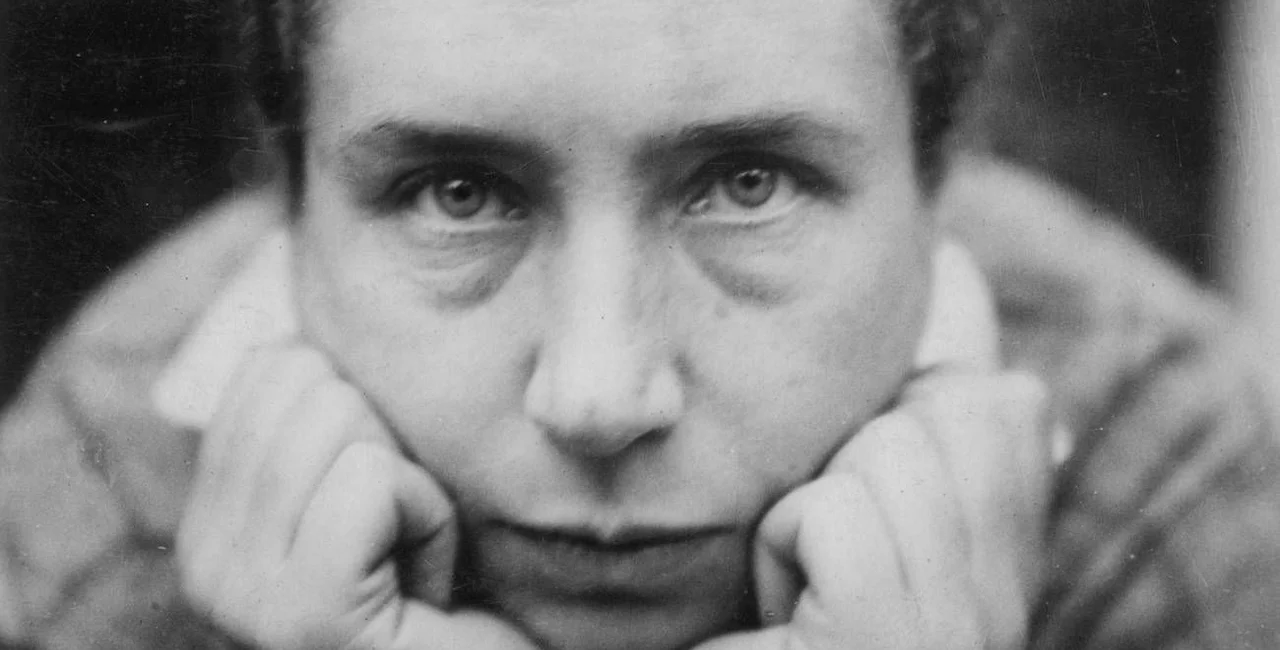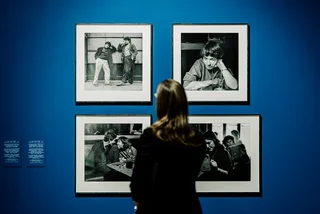Exposures, opening at Prague's Kunsthalle this week, is the first comprehensive exhibition on the life and work of Lucia Moholy, a photographer and writer whose work has remained uncredited for years.
The retrospective, which runs from May 30 to Oct. 28, 2024, showcases over 600 of Moholy’s photographs, microfilms, letters, articles, books, and audio interviews, many of which have never been seen.
Emblematic photos of Bauhaus architecture
The exhibition traces Moholy's career from the 1910s to the 1970s, highlighting her significant contributions to the arts, publishing, and information science. Despite her emblematic photographs of Bauhaus architecture and its representatives, Moholy was rarely credited for her work.
Exposures addresses this oversight by placing Moholy’s better-known Bauhaus works in dialogue with her later roles as an information scientist in Turkey and a central figure in the Zurich art scene of the 1960s and 70s. The exhibition also incorporates installations by contemporary Czech artist Jan Tichy, responding to the missing works in Moholy’s oeuvre.
“Though belonging to different generations, Tichy and Moholy share many characteristics: both grew up in Prague; both experienced a life divided between several countries; both experimentally approach the photographic medium,” says Christelle Havranek, chief curator at Kunsthalle Praha.
Stolen negatives 'shattered' the artist
Born Lucie Schulz in Prague, Moholy moved to Germany during World War I, where she met and marrried Hungarian artist László Moholy-Nagy in 1921. The couple collaborated on visual, textual, and auditory reproduction methods, which they articulated in their influential 1922 essay “Production-Reproduction” in the magazine De Stijl.
Moholy's photographic practice flourished while she lived at the Bauhaus in Weimar and Dessau in the mid-1920s. Her collection of portraits offers a visual narrative of her network and community, predominantly comprised of women during the interwar period. Notable figures portrayed include Florence Henri, Otti Berger, and Clara Zetkin.
Forced to flee Berlin in 1933 due to the rise of fascism, Moholy left hundreds of glass plate negatives in the care of Bauhaus founder Walter Gropius and Moholy-Nagy's husband. These photographs were extensively published without credit and significantly shaped the public perception of the Bauhaus.
In the 1980s, Moholy wrote an article speaking publicly about her stolen negatives, although she did not implicate Gropius by name, describing the process as “a shattering experience.”
A photography pioneer

The exhibition also explores Moholy’s time in London, where she opened a portrait studio and contributed to early discussions around establishing the first photography museum. After her studio was destroyed in the bombing of London, Moholy found work in the emerging field of microfilm as a technology of information science, eventually becoming a “technical expert” at UNESCO.
In the 1960s and 1970s, Moholy was recognized as an essential photographer in Zurich, where she diligently tracked the circulation of her Bauhaus photographs without attribution. After years of legal negotiations, many of her negatives were eventually returned, but over 300 are still missing.
The exhibition is accompanied by a symposium, talks, screenings, and workshops and a publication edited by Jordan Troeller and distributed by Hatje Cantz featuring new research on Moholy’s life and work.
Curated by Meghan Forbes, Jan Tichy, and Jordan Troeller, Exposures is a collaborative project with Fotostiftung Schweiz in Winterthur, where it will be on display in the spring of 2025.












 Reading time: 2 minutes
Reading time: 2 minutes 



























